History
On August 22, 2002, nine Uruguayan citizens founded the Liberal Party. They agreed on a Program of Principles, gave the Liberal Party an Organic Letter, named the first director and Julio Vera as its first president; one week later they presented to the Electoral Court the Request of Motto (see Ley de lemas).
After waiting more than a year, the Liberal Party obtained the necessary authorization from the Electoral Court, for official resolution of the above-mentioned corporation of January 21, 2004, communicated to the interested ones on January 30, 2004. From this moment, the Liberal Party is enabled to use the Partido Liberal (Liberal Party) motto in the electoral process that would celebrate the same year in the Eastern Republic of Uruguay.
In accordance with the current Constitution in 2004, the first instance of the electoral process is the internal elections, where every party chooses those who will integrate his Convention, and the candidate who will participate in the presidential election. In the above-mentioned instance, the Liberal Party obtained slightly more than 1.500 votes and Julio Vera was elected as candidate.
The first convention of the Liberal Party was held on August 22, 2004 at Montevideo. In accordance with the established for the constitution and the laws of the Eastern Republic of Uruguay, the convention realized the election of authorities for the period 2004–2009 and the election of the "formula companion" (that is, the one who accompanies the candidate to President and who is "elected" as Vice-president in case the party prevails in the election). In this occasion, the election of authorities determined the continuity of Julio Vera as President of the Liberal Party, and Jorge Borlandelli as "formula companion" or Vice-president candidate.
In the national elections of 2004, the Liberal Party obtained 1.548 votes.

The 1872 United States presidential election was the 22nd quadrennial presidential election, held on Tuesday, November 5, 1872. Despite a split in the Republican Party, incumbent President Ulysses S. Grant defeated Democratic-endorsed Liberal Republican nominee Horace Greeley.

The Dominican Republic is a representative democracy, where the President of the Dominican Republic functions as both the head of the government and head of the multi-party system. Executive power is exercised by the government. Legislative power is vested in the bicameral National Congress. The Judiciary is independent of the executive and the legislature.
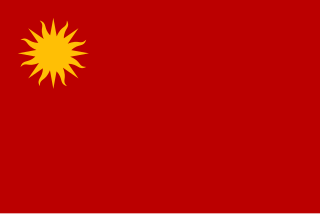
The Colorado Party is a liberal political party in Uruguay.
This article gives an overview of liberalism in Cuba. It is limited to liberal parties with substantial support, mainly proved by having had a representation in parliament. The sign ⇒ means a reference to another party in that scheme. For inclusion in this scheme it isn't necessary so that parties labeled themselves as a liberal party.

New Space is a social democratic party in Uruguay.

The National Party, also known as the White Party, is a major political party in Uruguay. It was founded in 1836 by Manuel Oribe, making it the country's oldest active political party, and together with the Colorado Party, its origin dates back to the time of the creation of the Uruguayan State.
Presidential elections were held in Chile on 4 September 1946. The result was a victory for Gabriel González Videla of the Radical Party, who received 40% of the popular vote and 75% of the Congressional vote.

Jorge Washington Larrañaga Fraga was a Uruguayan lawyer and politician of the National Party (PN) who served as Minister of the Interior from 1 March 2020 until his death. He previously served as Intendant of Paysandú from 1990 to 1999, as well as a Senator between 2000 and 2020.
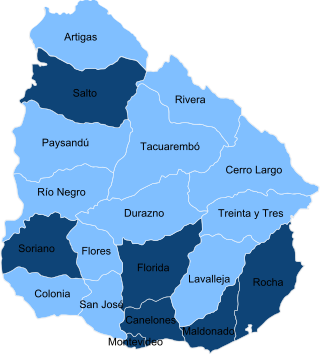
General elections were held in Uruguay on 31 October, alongside a constitutional referendum. The result was a victory for the Broad Front, marking the first time a party other than the Colorado Party or National Party had held power since the two parties were formed in the 1830s.
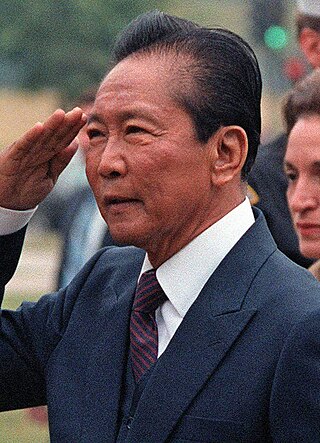
A parliamentary election was held in the Philippines on April 7, 1978, for the election of the 165 regional representatives to the Interim Batasang Pambansa. The elections were participated in by the leading opposition party, the Lakas ng Bayan (LABAN), which had twenty-one candidates for the Metro Manila area while the leading candidate was the jailed opposition leader Ninoy Aquino, and the Marcos regime's party known as the Kilusang Bagong Lipunan (KBL), which was led by the then-First Lady Imelda Marcos. Ninoy was allowed to run by his fellow partymates under the Liberal Party, who boycotted the election and was not allowed to campaign, and so his family campaigned for him. The night before the election on April 6, 1978, a noise barrage was organized by the supporters of (LABAN) which occurred up to dawn.
The constitutional history of Colombia is the process of formation and evolution of the different constitutions that Colombia has had since its formation.

The election of the president and the vice president of the United States is an indirect election in which citizens of the United States who are registered to vote in one of the fifty U.S. states or in Washington, D.C., cast ballots not directly for those offices, but instead for members of the Electoral College. These electors then cast direct votes, known as electoral votes, for president, and for vice president. The candidate who receives an absolute majority of electoral votes is then elected to that office. If no candidate receives an absolute majority of the votes for president, the House of Representatives elects the president; likewise if no one receives an absolute majority of the votes for vice president, then the Senate elects the vice president.
The name Constitutional was used for several loosely connected Costa Rican parties throughout history.

Presidential and vice presidential elections, legislative elections and local elections were held in the Philippines on May 11, 1992. An estimated 80,000 candidates ran for 17,000 posts from the presidency down to municipal councillors in the first general election under the 1987 Constitution. Even though she was permitted by the Constitution to run for a second term, President Corazon Aquino did not stand for re-election.

The Popular Democratic Party is a political party in Puerto Rico that advocates to continue as a Commonwealth of the United States with self-governance. The party was founded in 1938 by dissidents from the Puerto Rican Liberal Party and the Unionist Party and originally promoted policies on the center-left. In recent years, however, its leaders have described the party as centrist.

Political Evolution, also known in Spanish by its shorthand Evópoli, is a Chilean centre-right political party, founded in 2012. The party defines itself as a liberal platform for the people who look for a "modern centre-right who proposes as the central axis of their proposal the appreciation of diversity, the emphasis on encouraging local communities and the pursuit of social justice".
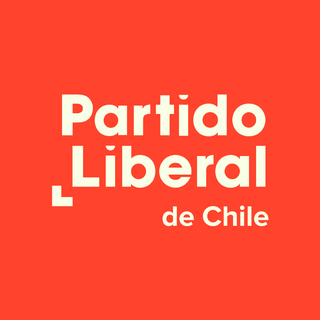
The Liberal Party of Chile is a social-liberal political party in Chile, founded 26 January 2013 in Santiago, Chile. The main figure of the party is the deputy Vlado Mirosevic.
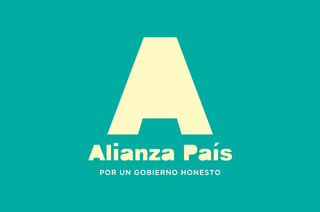
The Country Alliance is a political party in the Dominican Republic founded in 2011 by Guillermo Moreno and other citizens.

Presidential primary elections will be held in Uruguay on 30 June 2024 in order to nominate the presidential candidate for every political party in the general election on 27 October 2024.
Indirect presidential elections were held in Chile on 25 July 1891. Claudio Vicuña Guerrero, a member of the Liberal Party, was elected president. However, he never took office and subsequently went into exile.















